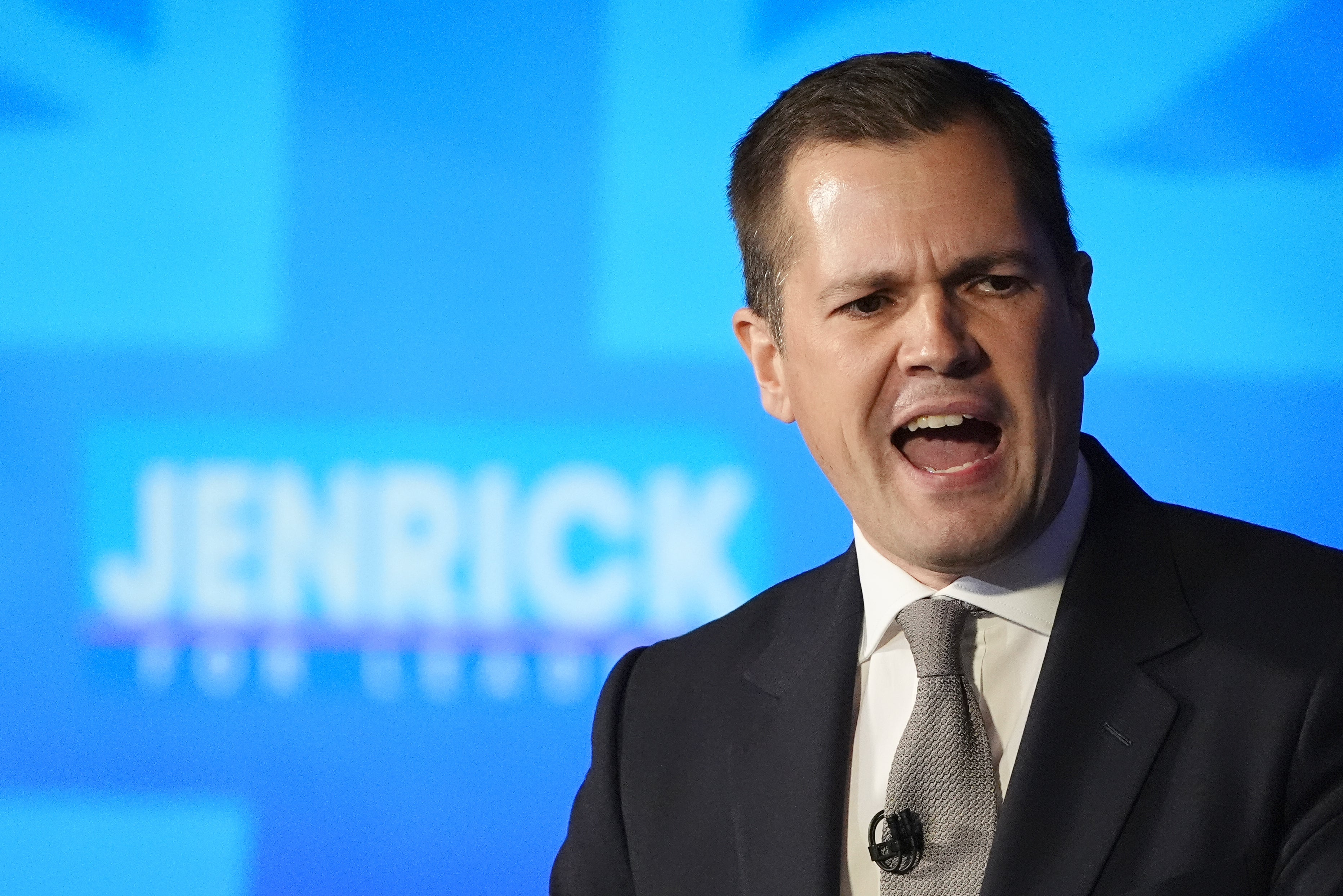Jenrick’s ‘segregation’ comments are straight out of Trump’s playbook
There was always a danger that the Tory leadership election could descend into an ugly bidding war between candidates vying to look toughest on migrants – now, the former immigration minister Robert Jenrick has laid into Birmingham, says John Rentoul


We have been here before. I had to come to the defence of Tower Hamlets, the east London borough where I live when, earlier this year, Paul Scully, the otherwise sensible and moderate Conservative former minister, spoke of “no-go areas” there and in “parts of Birmingham Sparkhill”. For this misspeaking, he resigned.
Now Robert Jenrick, the former moderate Conservative who has acquired a harder edge as an anti-immigration candidate for the party leadership, has condemned “segregated communities” in Birmingham. He was speaking at the weekend at a private hustings for West Midlands Tories, but his comments have been reported in The Times this morning.
“Those of you who live in Birmingham have seen that yourself, with intercommunal violence, with segregated communities, with diminishing public trust, and we’ve got to change this,” Jenrick said.
“It’s not the country I want my children and grandchildren to be growing up in.”
I can understand why immigration is an important issue in the Conservative leadership contest. It was one of the big causes of the party’s disastrous election defeat, as millions of people who had voted to leave the EU in order to reduce immigration felt betrayed when immigration increased. Millions of them defected from the Tories to Reform UK as a result, and many of those Tory members who stayed feel strongly that the party needs to win them back.
That is why Jenrick – who resigned from the Tory government over the issue of immigration – is in such a strong position in the leadership race. But talking of “segregation” is going too far. It is reminiscent of the casual racism of Donald Trump, who once provoked the Tory mayor of London, Boris Johnson, into an indignant defence of his city.
In 2015 Trump, who was then the Republican frontrunner for the presidency, called for a “total and complete shutdown of Muslims entering the United States”, claiming police in cities such as London and Paris were “afraid for their lives” because of large Muslim populations. Johnson cast diplomatic caution to one side to declare: “The only reason I wouldn’t go to some parts of New York is the real risk of meeting Donald Trump.”
I am not saying that Johnson is a model to be followed, but it is notable that Conservative politicians who actually represent areas traduced by outsiders tend to push back against such prejudice. Andy Street, the Tory former mayor of the West Midlands, was outraged by Paul Scully’s reference to no-go areas in Birmingham Sparkhill, and would presumably take issue with Jenrick’s “segregation” comment too.
I was not convinced when Jenrick resigned as immigration minister from Rishi Sunak’s government that he had a credible alternative policy – a credible alternative, that is, to a government that was already trying to restrict immigration sharply, having in effect admitted that the post-Brexit Johnson administration had got the balance wrong.
Kemi Badenoch is right, for example, to point out that withdrawing from the European Court of Human Rights, which is central to Jenrick’s leadership pitch, is not a simple answer to the small-boats problem.
There was always a danger that the Tory leadership election could descend into an ugly bidding war between candidates vying to sound tougher than each other on immigration. Jenrick has crossed the line with his suggestion that Birmingham is “segregated”. Yes, there are parts of Birmingham, and parts of east London, and parts of other British towns and cities, where large numbers of Muslims live. But overall the British record of integration and tolerance is good, and better than, for example, the French.
Scully tried to back off his “no-go areas” comment earlier this year, although he succeeded only in tying himself in more knots.
Jenrick should make clear that he is not trying to play the Trump card.






Join our commenting forum
Join thought-provoking conversations, follow other Independent readers and see their replies
Comments